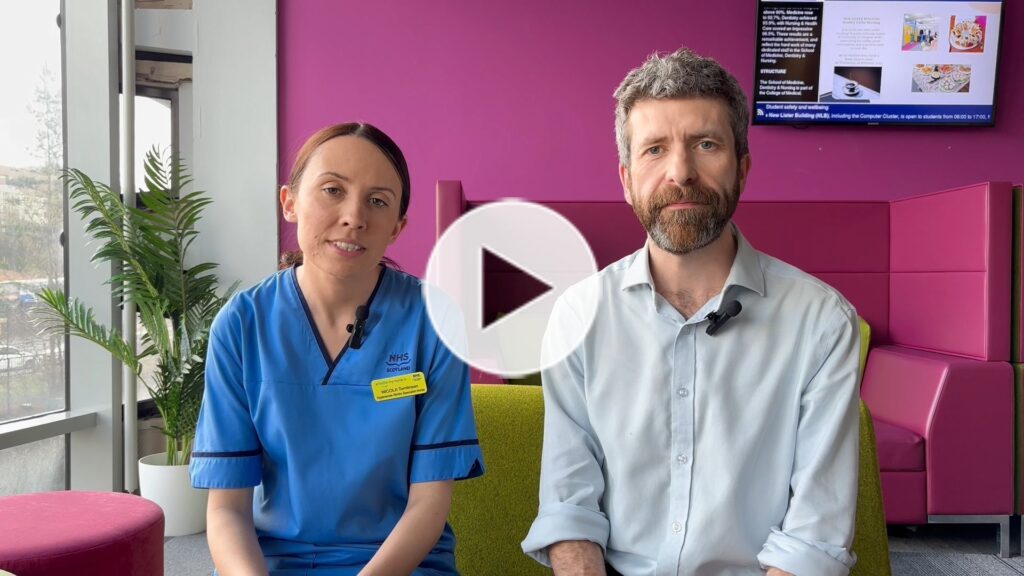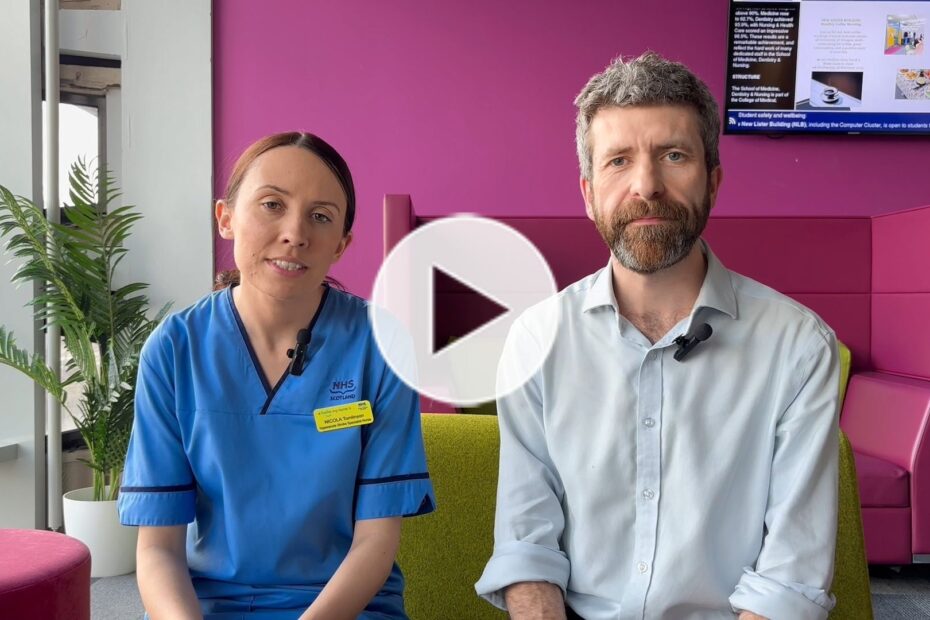
Residents of Greater Glasgow and Clyde are being reminded of the main signs of stroke – and urged to act FAST if they suspect someone is having one.
NHS Greater Glasgow and Clyde (NHSGGC) have released a new video with staff from Glasgow Royal Infirmary (GRI). Professor Terry Quinn, Stroke Consultant at GRI, and Nicola Tomlinson, Hyperacute Stoke Specialist Nurse, explain the FAST test and stress the importance of getting to hospital as soon as possible.
They note that getting medical help as quickly as possible could massively improve a person’s recovery if they’ve had a stroke, and could be the difference between life and death.
Specialist thrombolysis services are available at GRI, the Queen Elizabeth University Hospital (QEUH) and the Royal Alexandra Hospital in Paisley.
It is a type of medical procedure which dissolves stroke-causing blood clots – restoring blood flow to the brain.
This procedure must be carried out within the first few hours of symptoms starting, and any delay can potentially result in a substantial loss of brain tissue and functional abilities.
Terry and Nicola both highlight the main symptoms, which can be easily remembered using the ‘FAST’ test: Facial weakness, Arm weakness, Speech problems, Time to call 999.
- Face – Has the person’s face fallen on one side? Has their eye or mouth drooped, and are they able to smile?
- Arms – Can they raise both arms and keep them there?
- Speech – Is their speech slurred or garbled? The person may not be able to talk at all despite appearing to be awake and they may have problems understanding what you’re saying to them.
- Time – It’s time to dial 999 immediately if you notice any of these signs or symptoms.
Symptoms in the FAST test identify most strokes. Occasionally, a stroke can cause different symptoms, which might include problems with balance and coordination, a sudden and very severe headache, and a loss of feeling in one side of the body. However, there can be other causes for these symptoms.
Thrombolysis isused for the treatment of ischaemic strokes – those caused by blood clots – which account for approximately 85% of all cases.
The therapeutic window for thrombolysis is usually a few hours after symptoms have started, so it is crucial that people act urgently and call 999 as soon as they notice symptoms.
Studies have shown that for every 15-minute delay in administering thrombolysis, there is a corresponding loss of approximately one month of healthy life, primarily due to increased time for rehabilitation.
Professor Terry Quinn, Stroke Consultant at Glasgow Royal Infirmary, said: “If you suspect a stroke, it is vital that you or the person you are concerned about get to hospital as quickly as possible.
“Acting quickly could greatly improve their outcome and recovery, and could even save their life.
“The main signs of a stroke can be easily remembered as the ‘FAST’ test, and if you recognise any of these symptoms you must dial 999 immediately and ask for an ambulance.
“The delivery of thrombolysis treatment within the first few hours of symptoms starting can ensure blood flow to the brain is restored quickly, reducing the risk of disability and other lasting effects in stroke survivors.” For more information about strokes, please visit https://www.nhsinform.scot/illnesses-and-conditions/brain-nerves-and-spinal-cord/stroke/

